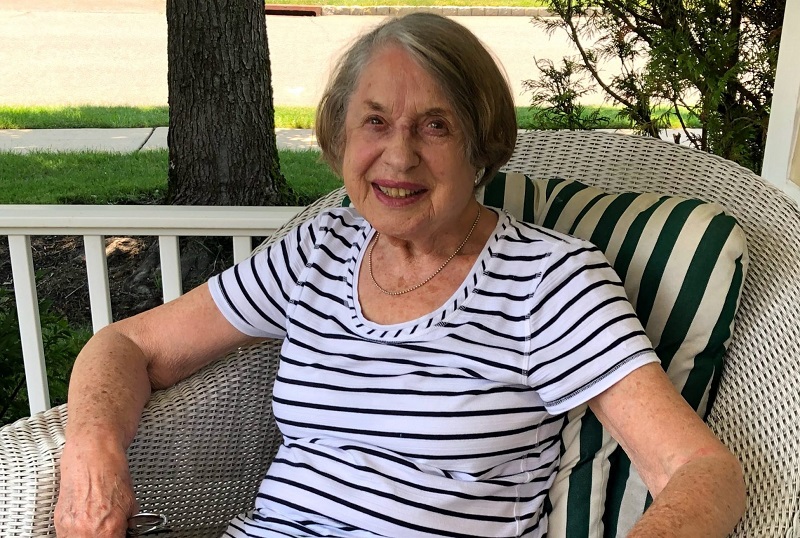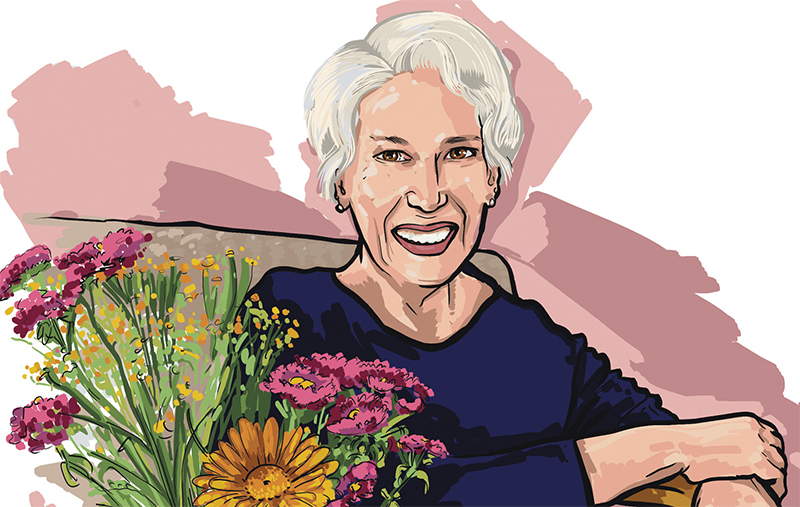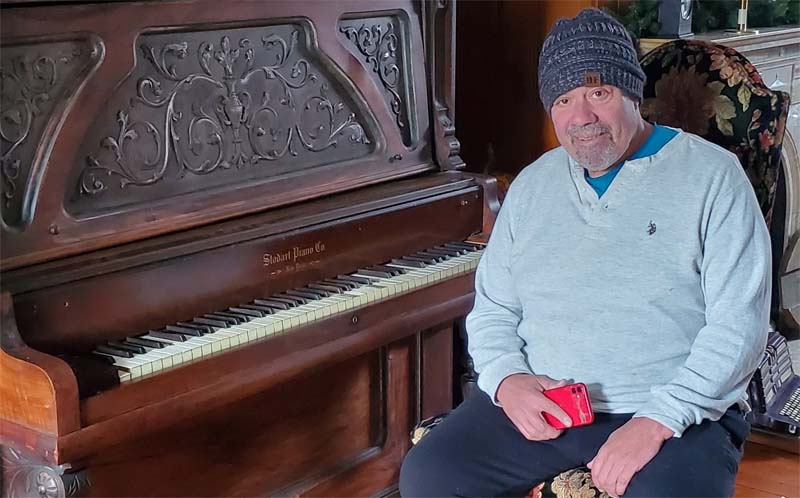

“It was the biggest shock of my life,” says Phyllis Rosenberg, a 91-year-old grandmother of two from Shrewsbury, New Jersey, about her lung cancer diagnosis last year. Phyllis is not a smoker—she remembers the last time she had a cigarette was in college—and she hadn’t been exposed to regular secondhand smoke since her husband quit in 1963.
Last year, she visited her doctor for bronchitis and was told that if her symptoms didn’t clear up from antibiotics, she should get a CT scan. That CT scan revealed a mass in her lungs, so she was referred to Frank Arlinghaus, M.D., a pulmonologist at Riverview Medical Center. After examining her, Dr. Arlinghaus determined Phyllis needed a biopsy, which confirmed that she had non-small cell lung cancer in her left lung. She was referred to Ziad Hanhan, M.D., a thoracic and esophageal surgeon who specializes in lung surgery.
The More You Know
Dr. Hanhan explains that for lung cancer that needs surgical treatment, the preferred option is robotic surgery. Robotic surgery allows for a minimally invasive approach, which has several benefits:
- Less trauma
- Smaller incisions
- Smaller scars
- Faster recovery
However, Dr. Hanhan explains that Phyllis’ case was not so cut-and-dry: “Not everyone is a candidate for surgery,” he says, adding that surgery can be riskier for some patients as they age. “We have to think through the best treatment plan for each individual.”
That’s why he was surprised when Phyllis came to her appointment already knowledgeable about the procedure. “I had to find out as much as I could, so I read everything I could find,” she says. “And I’m still doing that. I also talked to a friend of a friend who had lung cancer and had the same procedure to find out about her experience.”
Phyllis, along with her son who accompanied her to the appointment, decided to move forward with the surgery during their first meeting with Dr. Hanhan. “I felt that we had a really good conversation, and I found him very personable, kind and compassionate,” she says. “I was anxious to have it over with, so at that point, we scheduled the surgery.”
Road to Recovery
Phyllis’ surgery took place November 11, 2019. Dr. Hanhan performed a robotic-assisted left upper lobectomy, which is the surgical removal of a section of the lung, to remove the tumor.
Phyllis was happy to find that her research on robotic surgery proved true: Her experience was about as good as a surgical procedure can be. “I read that recovery is easier and faster, and I certainly felt that way with my surgery,” she says. “I found the experience top-notch at Riverview. We were in a private room with a river view—not that we requested it—and my daughter and son stayed with me the whole time. The doctors, nurses and staff could not have been nicer or more competent.”
While the collaborative atmosphere at Riverview among doctors, nurses and team members helps ensure patients achieve good outcomes, Dr. Hanhan gives credit to the patient in Phyllis’ case. “I think it’s important for patients to understand what’s going to happen and have the will to want to get better,” he explains. “Phyllis had that will to fight.”
After a four-day hospital stay, Phyllis was able to return home. Although she is still recovering and not yet back to “normal,” she can walk and do mild exercises every day. “I’m trying to do whatever I can to push myself,” she says. Fortunately, her daughter is staying with her during the coronavirus pandemic, which has been a big help. “I couldn’t be more thankful.”
A recent scan showed that while the surgery successfully removed the cancer in Phyllis’ left lung, a new small spot now appears on her right lung. She will undergo scanning in a few months to see if that spot is cancerous and if further action is needed.

Should You Get Screened for Lung Cancer?
Lung cancer screening has been shown to reduce mortality, but it is not necessary for everyone. If you have a history of smoking or exposure to secondhand smoke, you might wonder if you should get screened.
According to the U.S. Preventative Services Task Force, you should have a low-dose computed tomography (LDCT) scan—sometimes called a low-dose CT scan—annually if you:
- Have a history of heavy smoking, and
- Smoke now or have quit within the past 15 years, and
- Are between 55 and 80 years old
Heavy smoking is defined as a history of 30 “pack-years” or more. A pack-year is a history of smoking a pack of cigarettes per day for one year. So if a person smokes two packs a day, it would only take them 15 calendar years to achieve a 30 pack-year level.
“If you meet these criteria, contact your doctor and ask if screening is right for you,” Dr. Hanhan says.
Next Steps & Resources:
- Meet our source: Ziad Hanhan, M.D.
- To make an appointment with Dr. Hanhan or another doctor near you, call 800-822-8905 or visit our website.
- Learn more about lung cancer treatment at Hackensack Meridian Health
The material provided through Healthier You is intended to be used as general information only and should not replace the advice of your physician. Always consult your physician for individual care.
Find a doctor near me

Lung Cancer During COVID-19

Taste Test After Tongue Cancer

Catching Lung Cancer Early
